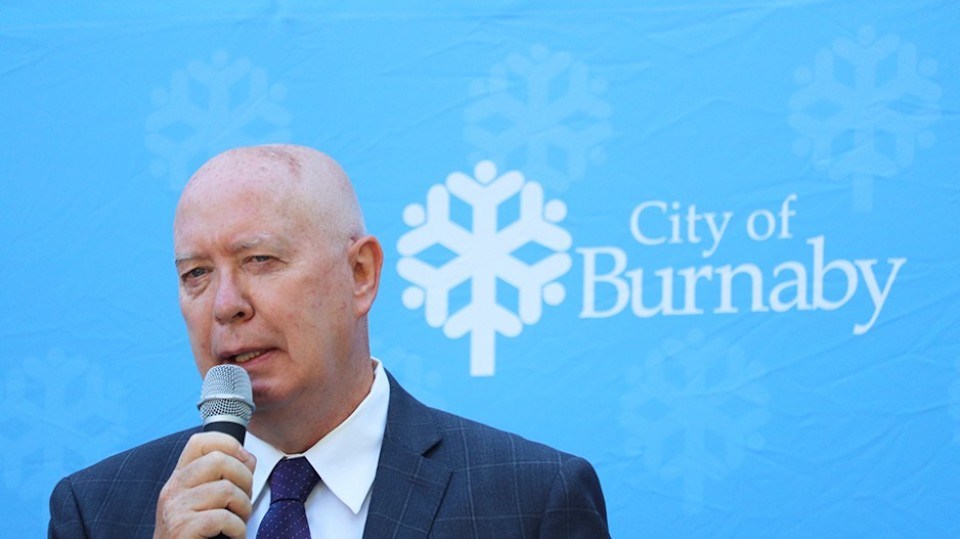Pollsters say affordable housing is by far the issue that will be top of mind when Metro Vancouverites when they go to the polls October 15
With candidates aiming to outdo each other with increasingly bold housing plans, it remains to be seen how vote splitting will impact final results.
A Mustel Group survey earlier this month for the Greater Vancouver Board of Trade found that affordable housing was the top election issue in Vancouver (38 per cent), Burnaby and New Westminster (49 per cent), the North Shore (48 per cent), in Richmond, South Delta and Tsawwassen (30 per cent) and Port Coquitlam, Port Moody, Coquitlam and Maple Ridge (30 per cent).
The only region where affordable housing was not the biggest election issue was in Surrey, North Delta, Langley and White Rock (19 per cent), where those who Mustel polled said crime was their biggest concern.
Research Co. polling showed similar results – with crime being the top issue in Surrey and housing the biggest concern in Vancouver, Burnaby, Richmond and New Westminster, owner Mario Canseco told BIV.
He said housing is the top election issue regardless of gender and age.
"There's going to be a significant emphasis on housing plans, which was not what we saw in previous elections in Vancouver," he said.
"In 2014, there was a little bit, and in 2018, there was a little bit, but if you go back to previous elections, we didn't have a lengthy discussion about housing in 2011, in 2008 or in 2005."
Divided on density
Higher-density zoning is often cited as a main solution to the housing crisis, and supporters of more density have many candidates to choose from.
Coun. Colleen Hardwick has staked her campaign for Vancouver mayor on advocating for what she calls “gentle density.” Her TEAM for a livable Vancouver aim to capitalize on what they see as voter resentment over the city passing its Broadway Plan, which allows for significantly more density, and towers up to 40 storeys in parts of Vancouver's West Side.
Her four main opponents all support more density to varying degrees, with Progress Vancouver's Mark Marissen and Forward Together's Kennedy Stewart seen as the most supportive. A Better City's Ken Sim also supports more density, said Quest University instructor Stewart Prest.
It is unclear where the Non-Partisan Association's mayoral candidate, Fred Harding, stands on increasing housing density, as much of his campaigning has been on enhancing public safety, he added.
Ideas for making housing more affordable also include building below-market rental housing, social housing, co-operative housing and units for sale to people below specific income thresholds.
Prest said many voters are likely to vote for city council candidates from multiple parties.
“It's complicated," Prest said, noting that OneCity Vancouver exuberantly supports more housing density but is running no one for mayor. Vision Vancouver is also without a mayoral candidate, and it is promising city-wide zoning reform, which would open up neighbourhoods to more density.
Vancouver is not alone in having sky-high housing costs.
"Housing is a big issue across Metro Vancouver," said New Westminster Mayor Jonathan Cote, who represents his city on several Metro Vancouver committees, and is not running for re-election.
He said his constituents, particularly those who live near SkyTrain stations, tend to accept that condominium towers will be built in their neighbourhoods.
The city, he said, made it clear that it wanted to densify New Westminster's downtown. He added that he thinks even single-family home owners around the city's 22nd Street Station have accepted that condominium towers will eventually get built.
"Traditional single-family neighborhoods have always been a lot more resistant to that type of land-use change," Cote said.
"That's a commonality in many areas across Metro Vancouver."
Cote said the city's three mayor candidates – Ken Armstrong, Patrick Johnstone and Chuck Puchmayr – all support residential density near SkyTrain. It is putting density in other parts of the city that may be more contentious.
Burnaby Mayor Mike Hurley is acclaimed in this election, unlike in 2018, when he unseated longtime mayor Derek Corrigan, who some found abrasive in his drive to densify land near Metrotown, Cote said.
"The two mayors have very different styles and I would say Mayor Hurley has taken a more conciliatory approach to the community [on the housing file,]" Cote said.
"I haven't gotten the impression that Mayor Hurley is against density and redevelopment, but he has certainly put a different eye to looking at affordable housing beyond just new housing supply."
Those other strategies include saving rental housing and building social housing.
Hurley has also expressed frustration at decisions by other levels of government.
He told the Union of BC Municipalities (UBCM) conference Sept. 12 that his city donated land for housing near the Royal Oak SkyTrain station. BC Housing was supposed to provide funding while the city managed on-site services, site preparation and fees, he told delegates.
Burnaby staff filled out hundreds of pages worth of forms only to have the B.C. government then reject project funding, he said.
Cote said Hurley's stances and willingness to battle other levels of government have likely made him popular enough to avoid having a challenger.
Combative Port Coquitlam Mayor Brad West is another Metro Vancouver mayor to be acclaimed for a second term. Longtime Pitt Meadows councillor Nicole MacDonald has won by acclamation in her first bid to be mayor.





